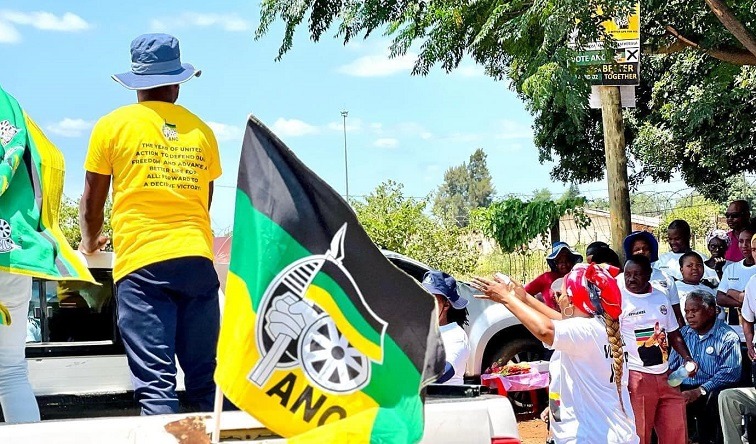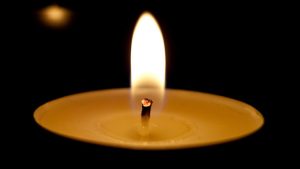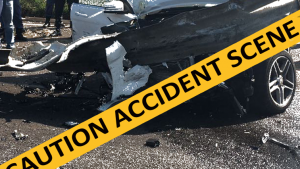There is no denying the governing African National Congress (ANC) is on the back foot going into the May 29, 2024 general election. It will lose support as many opinion polls are predicting.
But this decline in vote share will not be as bad as the pundits predict.
At least not when compared to projected losses other parties are expected to incur.
Reflecting on the ANC’s first ever electoral declines 2009 – 2019
After 15 years of surging electoral growth, the ANC endured its first decline in the 2009 poll. With Jacob Zuma as the face of the party on the ballot, the ANC dipped to 65.90%. Turnout was 77%.
Still, when one looks at the 3.78-percentage point decrease the ANC suffered in 2009 (69.68% in 2004 to 65.90% in 2009), it was not as bad as many had feared.
Some may argue that the ANC’s ‘modest’ electoral regression was impacted by the arrival of a breakaway party, the Congress of the People (COPE), spearheaded by former party chair, Mosioua Lekota and other Thabo Mbeki loyalists. COPE went on to win 7.42% of the vote or 30 seats.
On average, the ANC lost in the region of over 200 000 votes on the national ballot; and another 200 000 votes on the provincial ballot between the 2009 and 2014 election cycle – a fairly stable outcome.
| 2009 | 2014 | 2019 | 2014 – 2019 | |||||
| PROVINCE | NATIONAL | PROVINCIAL | NATIONAL | PROVINCIAL | NATIONAL | PROVINCIAL | N | P |
| EC | 1 609 926 | 1 552 676 | 1 587 338 | 1 528 345 | 1 399 455 | 1 357 137 | (187 883) | (171 208) |
| FS | 756 287 | 734 688 | 721 126 | 708 720 | 570 980 | 541 535 | (150 146) | (167 185) |
| GP | 2 814 277 | 2 662 013 | 2 522 012 | 2 348 564 | 2 413 979 | 2 168 253 | (108 033) | (180 311) |
| KZN | 2 256 248 | 2 192 516 | 2 530 827 | 2 475 041 | 2 026 069 | 1 951 027 | (504 758) | (524 014) |
| LIM | 1 319 659 | 1 265 631 | 1 202 905 | 1 149 348 | 1 163 091 | 1 096 300 | (39 814) | (53 048) |
| MPU | 1 152 698 | 1 110 190 | 1 091 642 | 1 045 409 | 918 756 | 858 589 | (172 886) | (186 820) |
| NC | 253 264 | 245 699 | 278 540 | 272 053 | 239 221 | 228 265 | (39 319) | (43 788) |
| NW | 822 166 | 783 794 | 763 804 | 733 490 | 633 223 | 590 777 | (130 581) | (142 713) |
| WC | 666 223 | 620 918 | 737 219 | 697 664 | 659 548 | 589 055 | (77 671) | (108 609) |
| OOC | – | 1 508 | 2 153 | +645 | ||||
| TOTALS | 11 650 748 | 11 168 125 | 11 436 921 | 10 958 634 | 10 026 475 | 9 380 475 | (1 410 446) | (1 578 159) |
| Sourced from www.elections.org.za (various election result dashboards) *OOC = out of country votes |
||||||||
However, by the time the ANC went to the 2014 national and provincial elections, another breakaway party entered the political ring in the form of Julius Malema’s Economic Freedom Fighters (EFF).
Unlike COPE which was led by former ANC heavy-hitters such as Lekota and former Gauteng premier, Mbhazima Shilowa, the EFF had a different constituency in their sights, the youth base of the ANC.
COPE at the time of the 2014 poll was in perpetual decline and the main opposition, the Democratic Alliance (DA) was on the prowl with party leader Helen Zille on a new charm offensive.
A few years before, Zille managed to court corruption fighter, Patricia De Lille and her Independent Democrats (ID) party. The ID was eventually absorbed into the DA. As early as 2011, DA Chief Executive Officer (CEO), Jonathan Moakes confirmed that like the ANC this party too would latch onto the ‘liberation’ narrative because the ‘timing was right’. What followed was a relentlessly negative campaign against the ANC, with the DA using images of the late Helen Suzman embracing Nelson Mandela with the caption ‘it was not only the ANC who fought against apartheid’. The DA’s ‘Know Your DA’ campaign also capitalised on Zille’s popularity by projecting her as an anti-apartheid crusader who sheltered ANC cadres from the apartheid security police; and the one White journalist who bravely exposed the Steve Biko murder cover-up. A video was even created to push Zille’s ‘struggle credentials messaging as part of the party’s ‘Know Your DA’ campaign.
And then, a few months before the 2014 general election, Zille boldly announced that respected academic Dr. Mamphela Ramphele would be the DA’s presidential candidate on the ballot paper, only for Ramphele to renege a few days later.
With a slightly lower turnout of 73.48%, the ANC won the 2014 general election decisively with 62.15% of the vote, a 3.75-percentage point decline from 2009.
Malema’s EFF won 6.35% and 25 seats in its maiden election.
COPE’s support was decimated, winning just 0.67% or 3 seats.
The DA, on the other hand, achieved its best electoral result yet in 2014, winning just over four million votes or 22.23% of the final vote – an increase of 5.57 percentage points. This gave the DA an additional 22 seats in the National Assembly, strengthening its hand as the official opposition.
By the time the 2019 general elections arrived, the ANC had emerged from its December 2017 National Conference. Zuma was removed as head of state in February 2018 and replaced with ANC President, Cyril Ramaphosa.
This added to the DA’s problems. For the 2014 and 2016 municipal polls, Zuma was the DA’s electoral trump card for its negative onslaught against the ANC. Using social media, the DA activated targeted campaigns against Zuma’s ANC, notably the endless state capture scandals, damage inflicted on State Owned Enterprises (SOE) (such as Eskom, Transnet, the Public Investment Corporation and South African Revenue Services), the Nkandla cover-ups, Zuma’s costly presidential jet upgrades; and the former president’s numerous cabinet reshuffles.
Although the ANC endured another electoral decline of 4.65 percentage points in the 2019 poll, the party won the election with a 57.50% majority – it’s lowest for a general election since 1994. The 19-seat decline was directly proportional to the 19 seats the EFF had won when the party increased its vote share to 10.79%.
Worryingly, the ANC shed support in every single province and metro.
On the national ballot, the ANC lost 1.4 million votes. On the provincial ballot, ANC support was down 1.5 million votes.
Most of these losses emanated from just three provinces, namely KwaZulu-Natal (524 000), Mpumalanga (186 000) and the Eastern Cape (171 000).
The 33% loss in KwaZulu-Natal could be attributed to Zuma’s removal, coupled with a revitalized Inkatha Freedom Party (IFP).
However, it is noteworthy to acknowledge that almost a million registered voters chose not to vote on Election Day. Voter turnout nationally had dipped to its worst level since 1994, at approximately 66%. At provincial level, the picture was even more worrying. In KwaZulu-Natal, Mpumalanga and the Free State, voter turnout was 10% lower than in 2014. Voter turnout in the Eastern Cape was 8% lower, 7% lower in the Western Cape and 5% lower in the highly urbanized Gauteng.
Without Jacob Zuma in the 2019 election campaigning season, the DA simultaneously suffered its first electoral decline since 1994 in this election, losing 1.46 percentage points or five seats since 2014. This decline translated into 470 000 votes nationally and 391 000 on the provincial ballot. Most of this lost DA support arguably gravitated towards De Lille’s newly-formed GOOD party (0.42% or 2 seats) and the Freedom Front Plus (2.38% or 10 seats). This argument is supported by a report commissioned by the party soon after the 2019 general elections. While Black African and Indian support for the party in the 2019 poll remained stable, the same could not be said for the other two racial groupings. Electoral support among Coloured voters dropped from 75% to 70%; and from 91% to 72.6% for White voters between the 2014 and 2019 general elections.
Three battleground provinces in the 2024 national and provincial elections
For the 2024 elections, the ANC’s focus is very much fixed on three provinces, namely KwaZulu-Natal, Gauteng and the Western Cape. Some media have already dubbed the three as ‘battlegrounds’ where the ANC’s support is likely to suffer even more.
In KwaZulu-Natal, for example, the ANC deliberately chose to launch their manifesto here, like they did for the 2019 poll.
There are five key players in the KwaZulu-Natal electoral space, namely the IFP, DA, EFF, National Freedom Party (NFP) and itself. Zuma’s Umkhonto we Sizwe (MK) party is another entrant that has been giving the ANC endless headaches since its December 16, 2023 launch. In two recent by-elections, MK split the vote in Abaqulusi and uPhongolo, giving the IFP easy wins in wards 8 and 2 respectively. MK’s objective it seems is not so much to wholesale unseat the ANC but to split the vote, bring the ANC below an electoral majority, and thereby force its kingmaker status on whichever party wins the most votes.
| DATE | WHERE | WARD | ANC | MK | IFP |
| 7 February | Abaqulusi | 8 | 336 | 211 | 505 |
| Turnout 25.66%; ANC & MK combined vote 547 but IFP won ward with 505 votes (46.54% | |||||
| 14 February | uPhongolo | 2 | 817 | 687 | 890 |
| Turnout 50.14%; ANC & MK combined vote 1504 but IFP won ward with 890 votes (36.39%) | |||||
| Sourced from www.elections.org.za results dashboard | |||||
With the IFP on the ascent in KwaZulu-Natal, the ANC has to do something extraordinary to arrest its decline here. If one looks at the 2021 municipal outcomes coupled with recent by-election results, the IFP is making a strong comeback. Remarkably, of KwaZulu-Natal’s single metro (eThekwini) and 43 local municipalities, there was not a single place where the ANC had increased its vote share between the 2016 and 2021 election cycles. In areas like Newcastle, uMngeni, Okhahlamba,eMadlangeni, Dannhauser, eDumbe, uPhongolo, Nongoma, Ulundi, uMhlathuze, uMlalazi, Alfred Duma and Dr Nkosazana Dlamini-Zuma municipalities, ANC support has halved.
In the other battleground province, Gauteng, between 2016 and 2021 the ANC failed to register any vote-share increase in its three metros and six local municipalities.
In the Western Cape ‘battleground’, the ANC made minor gains in two out of 24 local municipalities, namely Oudtshoorn and Knysna.
Combined, these three ‘battleground’ provinces account for 63% of South Africa’s Gross Domestic Product (GDP). Therein lies the importance and significance of winning here, come May 29, 2024.
These three provinces cumulatively represent the country’s economic hub.
Additionally, Gauteng, KwaZulu-Natal and the Western Cape account for 56.2% or 15.3 million of all registered voters.
Any serious political player who wants to win comfortably in any election needs to target these provinces first; and perhaps one or two of the other bigger provinces such as the Eastern Cape.
Losing in Gauteng, KwaZulu-Natal or the Western Cape will harm a party’s national vote share.
Just how will the ANC fare in the 2024 election?
Going on strictly how the ANC has been doing in past elections, by-elections included, the ANC’s national majority is safe. The party’s biggest asset remains Cyril Ramaphosa. It will be enough to thwart any electoral assault from other players. Issues such as the latest jobless numbers, the Phala Phala scandal, load shedding, water-shedding, crime and a generally sluggish economy will do little to dent the ANC’s captive constituency. Its biggest trump card remains its pro-poor ideological leaning. Voters still identify with the party.
However, when it comes to provinces such as Gauteng, KwaZulu-Natal and the Western Cape, the ANC goes into this election in a much lesser position of strength. Support will be eroded, and the party will lose electoral majorities in Gauteng and KwaZulu-Natal. In the Western Cape, it will weaken further.
Dr. Ronesh Dhawraj is SABC News Research Editor





